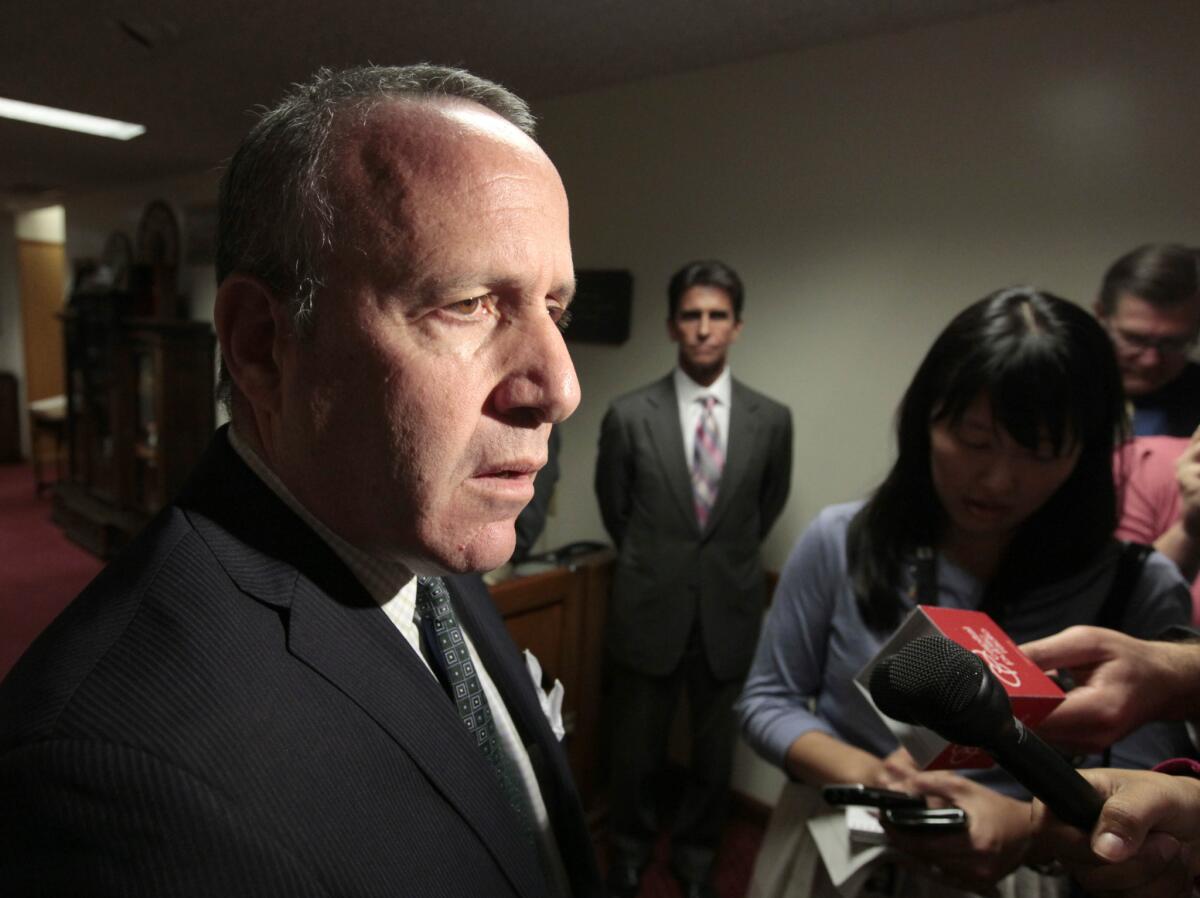California Senate leader proposes mental health program expansions

- Share via
State Senate leader Darrell Steinberg (D-Sacramento) on Tuesday proposed a plan to significantly increase mental health services in California with the goal of reducing the number of people ending up in prison, jail and emergency rooms.
Steinberg said the plan is in response to the Newtown, Conn., school massacre, in which a gunman killed 20 students and six adults, as well as a scandal involving a Nevada hospital dumping patients in other states, and the recent order by a federal court to further cut the number of inmates in California prisons
“It’s time for action,” he told reporters at the Capitol. Steinberg proposed expanding a program providing mental health services to prison parolees with mental illness from 1,500 to 5,000 people. Those in the program have a recidivism rate of 24%, nearly a third of the rate for those not in the program.
“While the governor appeals a federal court order to release thousands of state prison inmates, we also need to be smarter about crime by putting more resources into ensuring people who leave incarceration don’t commit new crimes and go back in,’’ Steinberg said.
His plan also would add 2,000 crisis treatment beds in residential facilities as an alternative to the more costly treatment at emergency rooms. Steinberg also proposed deploying 200 more mental health triage workers to assist the mentally ill with treatment, housing and educational services. He would also create 25 Mobile Crisis Support Teams, funded with $500,000 grants to counties, to help people at homeless shelters, jails and climics get short-term crisis care.
Steinberg said he does not have a price tag for much of the plan, but said some of it can be paid for by revenue from Proposition 63, the 2004 tax measure that funds mental health programs. He also said the Medi-Cal expansion under the federal Affordable Care Act will provide 100% coverage for new enrollees for three years.
There are some private funds available, but Steinberg said he is also willing to tap general fund money if the state’s financial picture is good enough in the May budget revision.
The plan was supported by law enforcement and mental health officials including Steve Fields, executive director of the Progress Foundation in San Francisco and Nevada County Sheriff Keith Royal.
Although his plan does not provide an immediate reduction in the prison population, Steinberg said he supports an appeal of the court decision that would require other actions. “We are not ready to jump into more early release or building more jail capacity,” he said.
ALSO:
California may go without a financial reserve
California tax revenue yields multibillion-dollar surplus
Proposition 30 win is no guarantee of fiscal security for California
More to Read
Get the L.A. Times Politics newsletter
Deeply reported insights into legislation, politics and policy from Sacramento, Washington and beyond. In your inbox twice per week.
You may occasionally receive promotional content from the Los Angeles Times.








